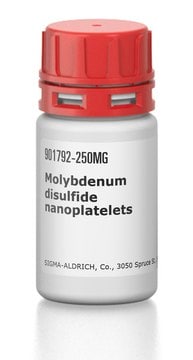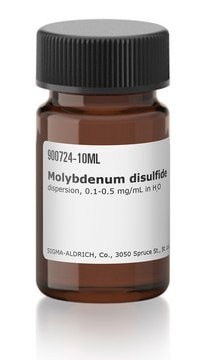902012
Molybdenum disulfide suspension
avg. no. of layers, < 3
Synonym(s):
2D-Moly sulfide dispersion, 2D-Molybdenum disulfide dipsersion with nonionic surfactant, 2D-Molybdenum disulfide dispersion, Moly sulfide
About This Item
Recommended Products
description
50-1000 nm
thickness < 3 layers
form
liquid
feature
avg. no. of layers< 3
greener alternative product characteristics
Design for Energy Efficiency
Learn more about the Principles of Green Chemistry.
sustainability
Greener Alternative Product
concentration
5 mg/mL in H2O
greener alternative category
Looking for similar products? Visit Product Comparison Guide
General description
Application
Storage Class Code
12 - Non Combustible Liquids
WGK
nwg
Flash Point(F)
Not applicable
Flash Point(C)
Not applicable
Choose from one of the most recent versions:
Certificates of Analysis (COA)
Don't see the Right Version?
If you require a particular version, you can look up a specific certificate by the Lot or Batch number.
Already Own This Product?
Find documentation for the products that you have recently purchased in the Document Library.
Customers Also Viewed
Articles
Recent advancements in paper-based sensing platforms offer cost-effective clinical diagnostics with microfluidic channels and colorimetric or electrochemical detection zones.
Recent advancements in paper-based sensing platforms offer cost-effective clinical diagnostics with microfluidic channels and colorimetric or electrochemical detection zones.
Recent advancements in paper-based sensing platforms offer cost-effective clinical diagnostics with microfluidic channels and colorimetric or electrochemical detection zones.
Recent advancements in paper-based sensing platforms offer cost-effective clinical diagnostics with microfluidic channels and colorimetric or electrochemical detection zones.
Our team of scientists has experience in all areas of research including Life Science, Material Science, Chemical Synthesis, Chromatography, Analytical and many others.
Contact Technical Service
